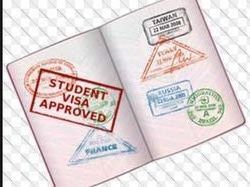The Pathway For Student Visas
After a long wait, Immigration New Zealand (INZ) announced changes to the student visa policy.
The initiative, The Pathway Student Visa Pilot, has the potential to cull the Indian student market. In 2016 Indian students accounted for about 50% of our visas for students.
According to INZ, the The Pathway Student Visa pilot was implemented on 7 December 2015 for an initial pilot period extending to 30 November 2018. These types of visas for students allow a student to undertake up to three consecutive programmes of study on a single student visa. It can be granted up to a maximum of five years, removing the need to apply for a new student visa for each new course as students progress on their education pathway in New Zealand.
Consecutive Study Programmes
INZ stated that participating education providers can offer a range of consecutive programmes of study either within their own institution or in conjunction with other selected education providers.
The key features of the programme are:
(1) More than 400 education providers have been invited to participate in the pilot.
(2) Participating education providers who intend offering a study pathway in conjunction with one another must enter into a formal agreement to manage pastoral care and education progress.
(3) Most study pathways will be eligible under the pilot. A number of study pathways that are made up entirely of lower level programs will be excluded.
Some exclusions
A Pathway Student Visa does not include:
(a) Any English language programme of study to any Level 1-4 Certificate on the New Zealand Qualifications Framework (NZQF)
(b) All pathways within and between NZQF Levels 1-4 Certificates and
(c) Secondary school to any NZQF Levels 1–4 Certificates.
One of the Pathway student visa requirements is English language. It states that an applicant must submit an International English Language Testing System (IELTS) test with the pathway student visa application if the intention is:
(1) To undertake a study pathway that begins with an English language course leading to a programme of study at levels 5 to 8 on the New Zealand Qualifications Framework
(2) and if the students are from a country that has an annual decline rate of more than 20% for student visa applications.
However, a number of other equivalent tests will be acceptable to INZ. They include Test of English as a Foreign Language internet-Based Test (TOEFL iBT); Pearson Test of English (PTE) Academic; Cambridge English: First (FCE) test; and Cambridge English: Advanced (CAE) test.
Reducing Numbers Of Visas For Students From India
India has had decline in number of students visas being granted for NZ of close to 50%. This is despite the majority of international students in New Zealand are from India. Student applicants from India must now meet the above requirements.
Students must demonstrate that they need an improvement of only an IELTS 0.5 band score (or equivalent) to gain entry in to the intended level 5 to 8 course.
INZ accepts English language tests as mentioned above, but the English language course must be completed within a 16-week period.
This policy is an attempt to control the overwhelming interest from the student market in India by granting visas for students who are interested in an education outcome rather than an immigration outcome. However, given the length of this pathway the immigration pathway could also be a feasible outcome.
Ending Student Exploitation
Secondly, it aims to provide incentives to education providers to engage with those education recruiters who provide them with students that are the right fit: students who are enrolling in high value courses and meet the English language requirement.s These education providers have acquired a preferred status via virtue of being on this list.
New Zealand encourages international students, preferably from a wealthy background and with English language skills who are seeking higher education. The aim is to grant visas for students for them as opposed to those students who are using the education process as a pathway to achieve Permanent Residence status and are being exploited in the process.
There are still many ‘troublesome aspects’ which the new policy does not address. I will explain those in another issue.
Time will tell how the new policy will work.


